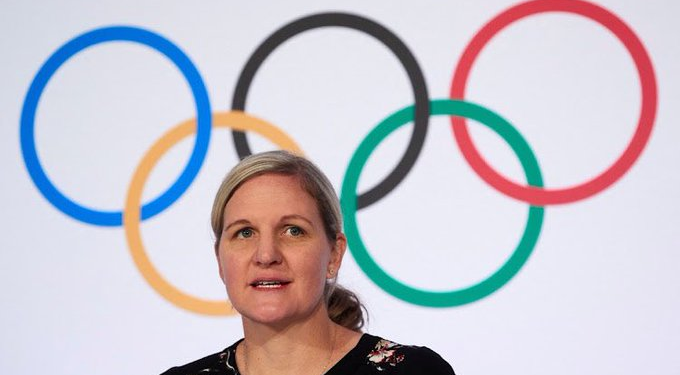Zimbabwe’s Sports Minister, Kirsty Coventry, has been elected as the new President of the International Olympic Committee (IOC), making history as the first woman, first African, and youngest person to ever hold the position.
The 41-year-old former swimmer, a two-time Olympic gold medalist, succeeds Germany’s Thomas Bach, who had led the IOC since 2013. Coventry secured victory in Thursday’s election in Greece, winning an outright majority with 49 of the 97 votes in the first round.

Among the contenders, World Athletics President Lord Sebastian Coe was considered a strong favorite but finished with just eight votes. Spain’s Juan Antonio Samaranch Jr was runner-up with 28 votes, while France’s David Lappartient and Japan’s Morinari Watanabe each received four. Sweden’s Johan Eliasch and Jordan’s Prince Feisal al Hussein secured two votes apiece.
Already a member of the IOC Executive Board, Coventry was reportedly Bach’s preferred successor. Her victory ensures she will lead the world’s highest sporting body for at least the next eight years.
Coventry, who won seven of Zimbabwe’s eight Olympic medals—including back-to-back gold in the 200m backstroke at the 2004 and 2008 Games—expressed her pride in the moment.
“The young girl who first started swimming in Zimbabwe all those years ago could never have dreamed of this moment,” she said after her victory.
“I am particularly proud to be the first female IOC president, and also the first from Africa. I hope that this vote will be an inspiration to many people. Glass ceilings have been shattered today, and I am fully aware of my responsibilities as a role model.”

During her campaign, Coventry pledged to modernize the IOC, promote sustainability, embrace technology, and empower athletes. She also strongly advocated for the protection of female sport, supporting a complete ban on transgender women competing in female Olympic categories.
However, her tenure as Zimbabwe’s sports minister since 2018 has not been without criticism. She has faced backlash over her association with the government of President Emmerson Mnangagwa, which has been accused of corruption and human rights violations. FIFA also banned Zimbabwe from international football in 2022 due to governmental interference, and last year, the U.S. imposed sanctions on Mnangagwa and senior officials.

The election took place in a luxury hotel near Olympia, the birthplace of the ancient Olympic Games. IOC members were required to surrender their phones before participating in a secret electronic ballot.
Candidates were limited to a 15-minute private presentation in January, with media barred and no opportunities for members to ask questions. Public endorsements and criticism of rivals were prohibited, making behind-the-scenes lobbying crucial in the outcome.
As the 10th person to lead the IOC, Coventry now faces the challenge of shaping the future of global sport while navigating political complexities within and beyond the Olympic movement.









